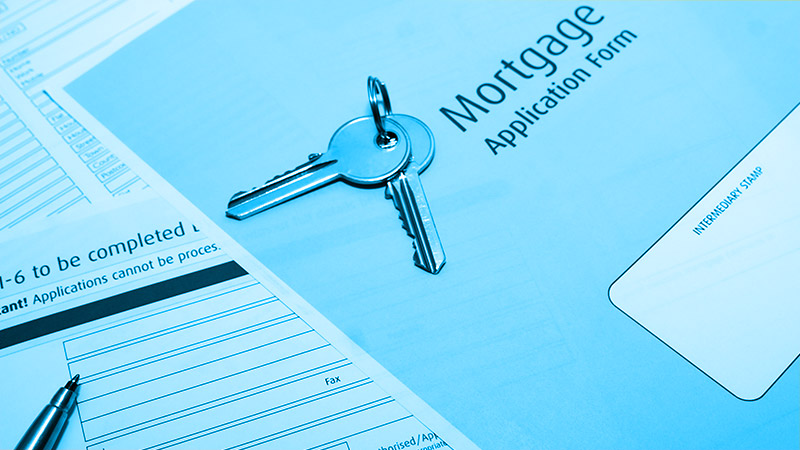Securing an expat mortgage in the UK while relying on income earned abroad might seem like a daunting challenge, but it’s entirely possible with the right approach.
Whether your earnings stem from overseas investments, rental income, or pensions, there’s a path to turn your foreign income into the foundation of your UK property dream. In fact, falling UK expat mortgage rates may just drive renewed interest for foreign investors.
Why It’s Possible to Qualify for an Expat Mortgage with a Foreign Income (and What Lenders Look For)
Foreign income can be used to qualify for an expat mortgage, but to do so, you must demonstrate that your earnings are consistent and reliable. Lenders tend to focus on the following:
- Acceptable Income Sources: Rental income, pensions, investments, and offshore earnings are often considered, provided they are well-documented.
- Stability of Earnings: Regular income streams supported by tax returns, bank statements, and employment contracts reassure lenders of your ability to make repayments.
- Currency Risks: With fluctuating exchange rates, lenders may take a conservative approach, discounting a portion of your foreign earnings to mitigate risk.
Securing an expat mortgage isn’t just about ticking boxes; it’s about showing lenders that you’re financially reliable and responsible. With the right approach and a bit of planning, using your foreign income to secure a UK mortgage is entirely within reach.
What Is an Expat Mortgage?
An expat mortgage is a financial product tailored for people living abroad who wish to purchase property in the UK. These mortgages allow expats to invest in property as an income-generating buy-to-let property or a future residence.
Key requirements often include:
- A minimum deposit of 10–25% (depending on the lender).
- A strong credit history and financial ties to the UK.
- Evidence of stable income, whether from employment, investments, or other sources.
Can You Use Foreign Income for an Expat Mortgage?
Yes, foreign income is acceptable for a UK expat mortgage, but lenders require assurance that your earnings are consistent and reliable. Here’s what you need to know:
Types of Foreign Income Accepted for Expat Mortgages
UK lenders are open to considering foreign income for expat mortgages, but they require comprehensive documentation to verify the stability and reliability of that income.
Engaging with a specialist broker can further help in navigating these requirements. These income types are generally accepted:
- Rental Income: Earnings from properties abroad are often welcomed, provided they are consistent and well-documented. Lenders will usually ask for proof of rental agreements, recent tax returns, and bank statements showing regular payments. This income is particularly attractive if it’s from a stable market with low vacancy rates.
- Investment Returns: Dividends or profits from international investments can bolster your application, but lenders may scrutinize the stability and predictability of this income. They typically require supporting documents, such as investment statements, tax returns, or evidence of historical returns.
- Overseas Pensions: Regular pension payments are considered a reliable income source, especially for retirees. Lenders value pensions for their stability and often ask for proof of consistent deposits into your bank account, pension award letters, or other formal documentation.
- Employment Income: Salaries earned abroad are commonly accepted, especially if they are from a reputable employer or industry. Lenders require detailed documentation, including employment contracts, recent payslips, and tax returns. If the income is in a foreign currency, lenders may apply conservative exchange rate calculations to account for fluctuations.
What Documents Do Lenders Require?
Lenders need proof of financial stability, especially when foreign income is involved. Most mortgage providers in the UK will require:
- Bank Statements: At least six months’ worth, showing regular deposits of your income.
- Tax Returns: For the past two to three years verify your declared earnings.
- Employment Contracts: For salaried income, particularly if you’re working abroad.
- ID and Address Proof: Typically, a passport and utility bill or bank statement will suffice.
It’s important to ensure all documents are translated into English and certified if they originate in another language.
Related reading:
- Reasons for remortgaging.
- Remortgaging to release equity.
- Remortgaging to buy another property.
- Remortgaging with bad credit.
- Remortgaging for home improvements.
- I own my house outright can I remortgage?
- Capital raising mortgages.
Factors Lenders Consider for Expat Mortgages
Stability of Foreign Income
Lenders prioritise steady and predictable income. A fluctuating or irregular income stream is a red flag, particularly if it’s affected by seasonal work or unstable markets. Providing clear documentation, such as payslips and audited accounts, can help reassure lenders and make you stand out as a reliable applicant.
Currency Exchange Risks When Using Foreign Income to Qualify for an Expat Mortgage
Fluctuations in exchange rates present significant risks for lenders as a sudden drop in the value of your income currency could affect your ability to afford your monthly mortgage payments.
Lenders mitigate the risks by using conservative exchange rates when calculating affordability. For example, if you’re earning in a volatile currency, they may only consider 70–80% of your actual income to account for possible fluctuations.
Tips for Securing an Expat Mortgage
Work with a Specialist Broker
A professional broker can help you navigate the complexities of expat mortgages. These professionals can point you in the direction of the right specialist lenders, know the nuances of expat lending, and can guide you through currency concerns and documentation requirements.
Strengthen Your UK Credit Profile
You’ll need a good credit reference, which you can improve by:
- Electoral Roll: Registering on the electoral roll (if eligible) strengthens your financial identity.
- Active UK Bank Account: Keeping a UK-based account demonstrates financial ties and responsibility.
- Good Credit Habits: Maintain a positive credit score by managing debts and avoiding defaults.
Prepare for Larger Deposits
Lenders often require a higher deposit for expat mortgages, typically 10–25%. This reduces the lender’s risk and may secure you a more favourable interest rate.
Address Currency Exchange Risks
Consider using tools like currency hedging to protect against exchange rate volatility. Brokers can recommend lenders that are more flexible with currency considerations.
Why Lenders Are Cautious with Expat Mortgages
UK lenders are typically cautious with expat mortgages due to the additional risks involved, such as:
- Legal and Tax Complexities
Income earned abroad may fall under different tax jurisdictions, making it harder for lenders to assess reliability.
- Economic Instability
Political or economic turmoil in your host country can impact your financial stability.
Conclusion
Securing an expat mortgage with foreign income is a realistic goal when approached with preparation and the help of a professional broker. By demonstrating income stability, maintaining strong UK financial ties, and working with a knowledgeable broker, you can confidently navigate the process.
Call us today on 01925 906 210 or contact us to speak to one of our friendly advisors.

















